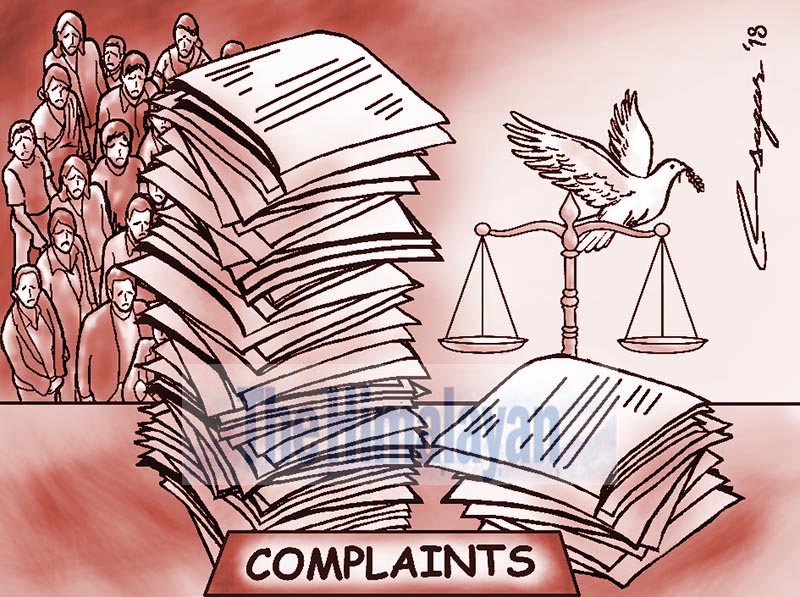Victims’ woes unaddressed
- Families of those who disappeared during the Maoist insurgency that lasted from 1996 to 2006 still continue their fight to know the whereabouts of their loved ones and grapple with various vulnerabilities and social stigma.
Kathmandu, August 29
The Supreme Court’s landmark verdict in June 2007 directing the government to take measures to address their grievances continues to delude victims of conflict-era disappearances.
The SC had directed the government to ensure accountability for disappearances, establish a commission of inquiry consistent with international standards, criminalise enforced disappearances, investigate and prosecute persons responsible for disappearances and provide adequate compensation and relief to victims and their families.
Similarly, international organisations had also urged the government to investigate cases of enforced disappearances, provide adequate compensation to victims and their families and enact laws in line with international standards and Supreme Court verdicts.
However, the government has neither implemented Supreme Court verdicts nor has it bothered to heed international organisations.
The government set up the Commission of Investigation on Enforced Disappeared Persons in 2015. The commission collected 3,212 complaints of conflict-era enforced disappearances. However, it failed to investigate even a single case, thanks to lack of legislation, the state’s financial control over CIEDP and the commissioners’ loyalty to political parties.
As the world marks International Day of the Disappeared tomorrow, families of those who disappeared during the Maoist insurgency that lasted from 1996 to 2006 still continue their fight to know the whereabouts of their loved ones and grapple with various vulnerabilities and social stigma.
That fight has now shifted to the second generation in some cases. Nagma Mali of Thecho, Lalitpur, is a case in point. Nagma was seven years old when security forces picked up her father Nanda Gopal from Tahachal area in April 2004. Nagma and her younger sister, who had lost their mother at a very young age, also lost their grandfather Sanu to cancer a year after their father’s disappearance.
The two sisters were then raised by their grandmother Mishree, who also lost her life in January this year.“My grandmother fought for her entire life to know the whereabouts of her disappeared son,” said Nagma, now 22. “Now, I have taken up the baton.”
However, this is not the only front Nagma is fighting on. She is also fighting a court battle against her father’s cousins who tried to grab her grandfather’s property after his death although her father was the only son of his parents and he should have inherited Sanu’s property.
After Nanda Gopal disappeared, the property should have ideally been transferred to Nagma and her sister. But as per the law, Nagma needed to produce their father’s death certificate.
Although, the kin can acquire death certificate 12 years after the disappearance, Nagma does not want to do so.“How can I acquire death certificate of my father when the state has not said he is dead?” Sanu asked. “So my father’s cousins are trying to exploit my compulsion and grab our property.”
This is a common problem faced by the victims as male heads of family who control family property have been disappeared in majority of cases. This has also led to the family losing guardianship and struggling financially.
“There’s not a single day when I do not miss my father,” said Nagma. “But I miss him the most when I am not able to pursue things I like in the absence of a guardian who could have supported me morally and financially.”
Nagma represents victims based in urban areas who have somewhat better access, but things are worse when it comes to those who are based in remote areas. Such victims, who make up more than 45 per cent, have not even received government relief and do not know whether an inquiry commission has been established, according to Bishnu Pathak, former member of CIEDP that conducted preliminary investigation into complaints in around 60 districts.
“They are so naive they just want to know the truth and conduct the final rites of their loved ones,” said Pathak. “Women are the most affected in rural areas because of the associated social stigma,” he said.
Pathak said the problem could not be solved without strong political will. Victims’ families also say the issue could be resolved only if the state implemented the Supreme Court’s verdicts, fulfilled social, political and economic needs of the victims, told victims the truth and guaranteed non-repetition of conflict.
“The solution lies at the local level,” said Ram Kumar Bhandari, founder of National Network of Families of Disappeared and Missing Nepal. “But strong political will is needed.”






